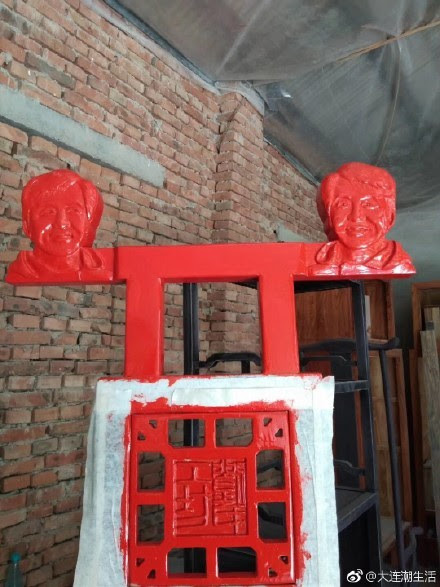jumpingjacktrash:arrghigiveup:cimness:China’s netizens are all in a twitter over the acc
jumpingjacktrash: arrghigiveup: cimness: China’s netizens are all in a twitter over the account of a carpenter who was commissioned to make a cinnabar red high-backed chair with the finials at the top to be “in the shape of dragons’ heads” (chéng lóngtóu 成龍頭). Unfortunately, he misinterpreted the directions to mean “[in the shape of] Jackie Chan’s head” (“Chénglóng tóu 成龍頭”). (via Language Log » Reanalysis, Jackie Chan edition) LMAO ok so to elaborate on this absolute gem, notice how the characters provided for “in the shape of dragons’ heads” and “[in the shape of] Jackie Chan’s head” are identical? That wasn’t a typo. The thing you need to understand about Chinese names is that they all have meaning. And I don’t mean that in the sense of “if you trace the etymology back through two languages it has its roots in a Hebrew phrase that means “God is my ____” that many Western names have. I mean that in the sense of “almost all of these words are still in regular use today and my parents very literally named me “pretty [and] wise” in Chinese. (Sidenote: This is why we get annoyed at made-up ‘Chinese’ names that just pull two random vaguely Chinese-sounding syllables together. It is blindingly obvious when it’s not a real name). 成 (chéng) means “to become”, “to turn into”. 龍 (lóng) is “dragon”. Thus, Jackie Chan’s Chinese stage name, 成龍 (Chénglóng), literally means “become dragon”. (頭 (tóu), of course, means “head”) (Further sidenote: This is actually a bit of a pun/reference. Specifically, it is a reference to Bruce Lee, whose stage name was 小龍 (Xiǎolóng), or, “Little dragon”. So Jackie’s chosen stage name means both “become dragon”, and “become [like] Bruce Lee”) The other thing you need to know about Chinese is that we don’t put spaces between terms in written text. What all this means is that the way you’d write “[carve] into dragon heads” can be identical to the way you’d write “[carve] Jackie Chan’s head”, and literally the only difference would be where you pause when you vocalise it: before lóngtóu, or after chénglóng. XD i think the chair turned out great -- source link
#interestingggg
